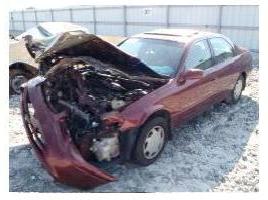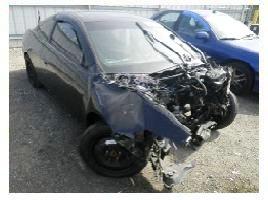Ask an Attorney a Question for FREE!
Vermont Insurance Laws
Vermont Insurance laws regulate ownership rights and motor vehicle operation in the state. Like most of the states in the United States, Vermont requires its motorists to provide Evidence of Financial Responsibility when operating in the state roads.
Ask a Lawyer Now!
|
|
Evidence of Financial Responsibility can take one of two forms:
- A bond of $300,000.00 or more
This will act as funds to cover any damages the vehicle owner caused in an auto collision.
- An auto insurance policy that satisfies the state minimums
This is usually the option for average motorists. An auto insurance policy can be acquired from an insurance provider recognized by the state.
For the latter of the above options, the state of Vermont has mandated the following to be the minimum insurance limits an insurance provider is to issue a Vermont resident.
Auto Insurance Minimum Coverage Requisites
- Bodily injury liability of $25,000 per individual up to $50,000 total per accident
- Property damage liability of $10,000 per accident
- Uninsured motorist bodily injury of $50,000 per person up to $100,000 total per accident

Vermont does not require you to purchase Personal Injury Protection or PIP coverage.
Vermont is not a “No-Fault” state but a Tort state; thus “No-Fault” policies do not apply. Personal Injury Protection is not required, however, Uninsured/Underinsured Motorist (UM/UIM) coverage is. When in an accident in this state, your insurance provider assumes that the responsible party’s insurance company will cover for all the losses you sustained.
This includes bodily injury and damages to your property. Say you got involved in an accident with an uninsured or with a motorist with insufficient insurance. Your Uninsured/Underinsured Motorist coverage will step in and pay for your losses. Without a UM/UIM coverage, you will be forced to pay for your own damages out of your own pocket.
If you have available funds, you can opt for self-insurance. If you choose this route, you are required by Vermont insurance laws to provide Evidence of Insurance amounting to $115,000.00 to the Commissioner of Motor vehicles of the state.
Proof of Insurance must be kept at the vehicle at all times. Failure to present a proof of insurance upon the request of a law enforcer could mean a traffic ticket, a fine of $100 and an award of 2 points on your driving record. You will also have to provide Evidence of Financial Responsibility to the Vermont Department of Motor Vehicles (Vermont DMV).

If you are caught driving without insurance, driving while intoxicated, running off from an accident, practicing hazardous driving that resulted to a death, driving without vehicle registration or driving a motor vehicle with no owner’s consent then your sanction would be license revocation. Your driver privileges could be removed from you for good.
If you let your auto insurance lapse then your insurance provider is required by Vermont Insurance laws to notify the Vermont Department of Motor Vehicles that you no longer carry auto insurance. Upon being notified, the DMV will immediately suspend your driver’s license and vehicle registration.
| Vermont Insurance Laws | |
| Jurisdiction | Modified Comparative Fault -- 51 Percent Bar |
| Liability Insurance required? | Yes |
| Personal injury liability maximum for one person injured in an accident. | $25,000 |
| bodily injury liability maximum for all injuries in one accident. | $50,000 |
| property damage liability maximum for one accident. | $10,000 |
| PIP required? | No |
| No-fault state? | No |
| Uninsured motorist coverage required? | Yes |
| Bodily Injury Statue Of limitations | 3 Years |
| Property Damage Statute of Limitation | 3 Years |
| Small Claims Court Maximum Limit | $5,000 |
Back to all 50 states insurance laws and regulations.
|
For a Free Review of Your Case
Please Call (866) 878-2432 |


